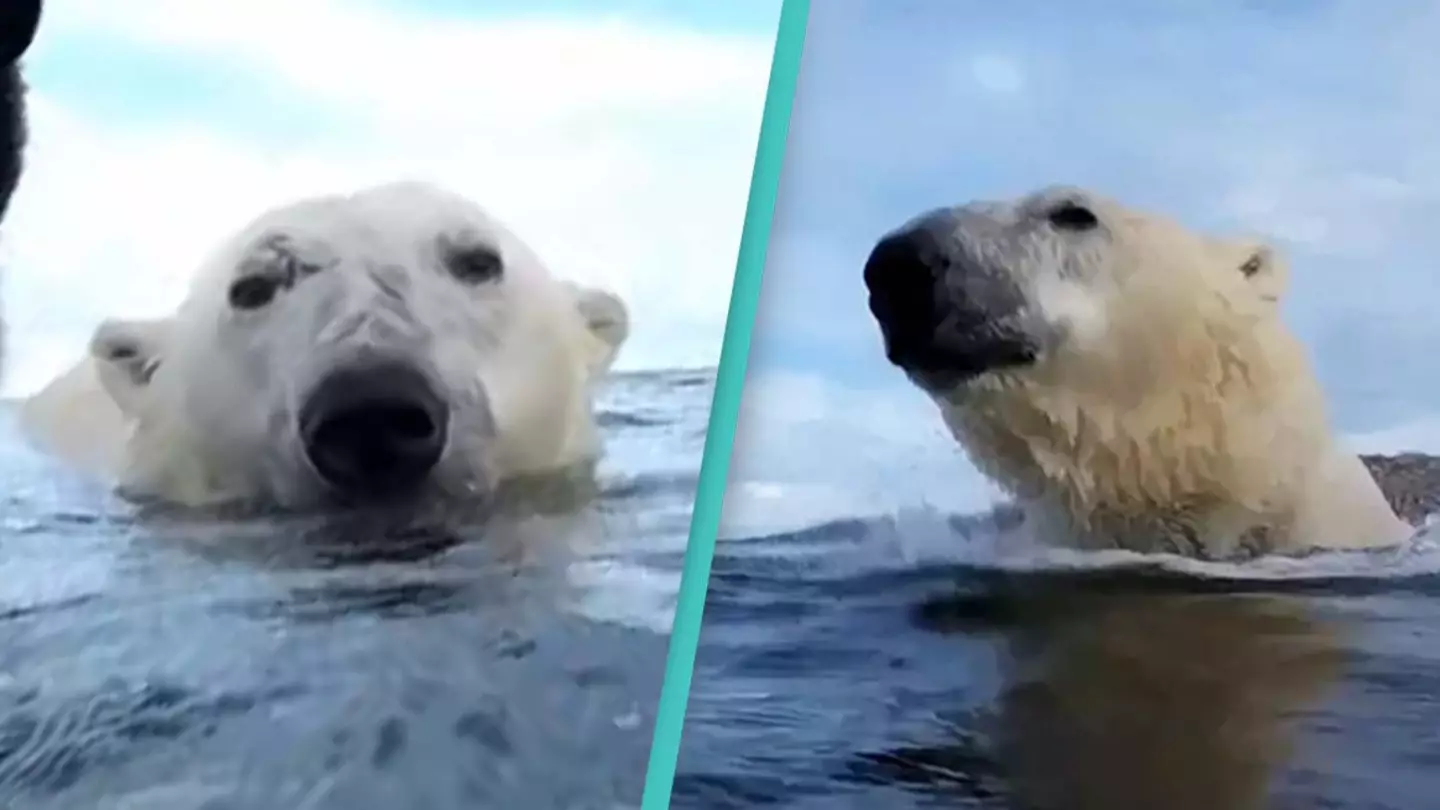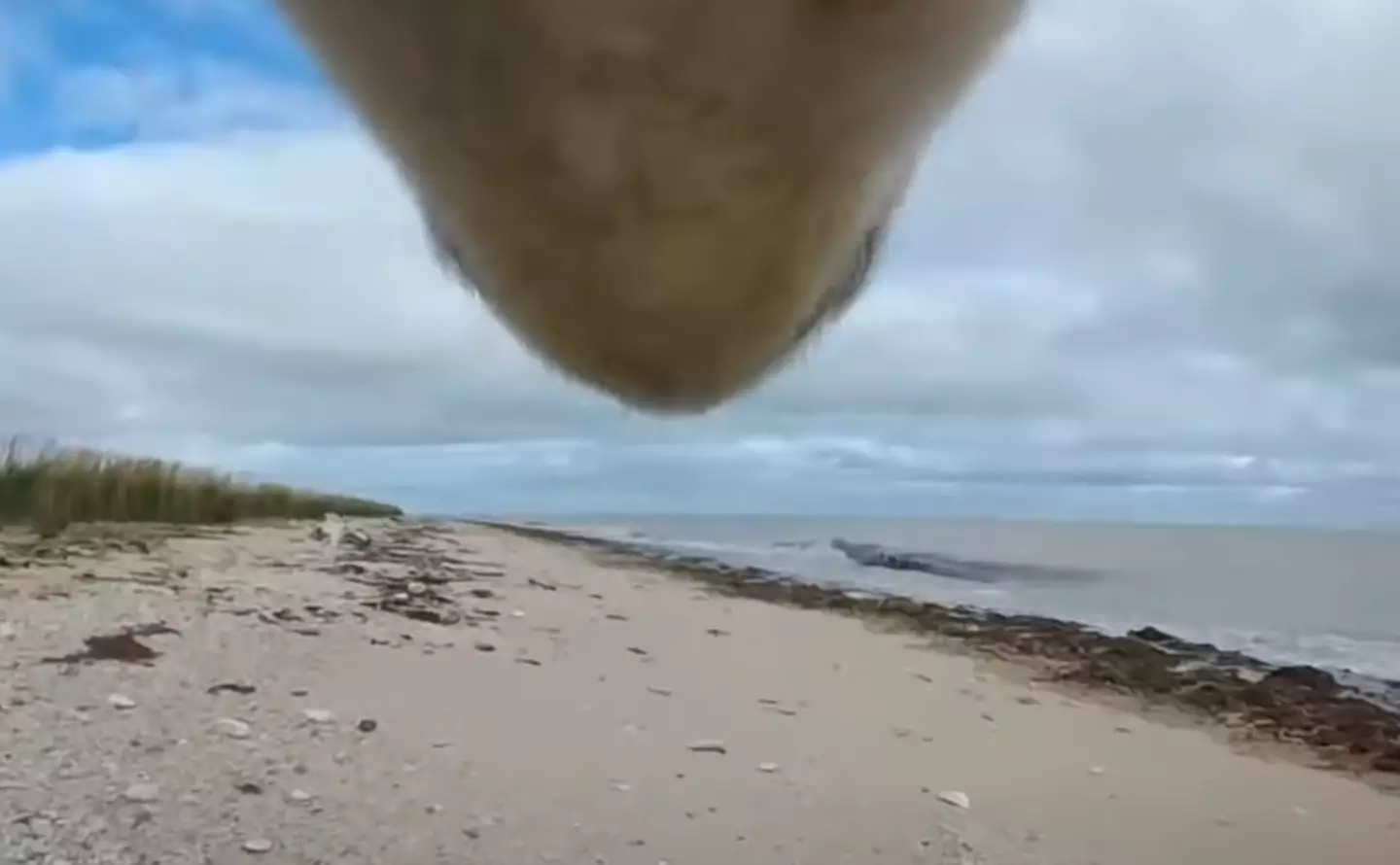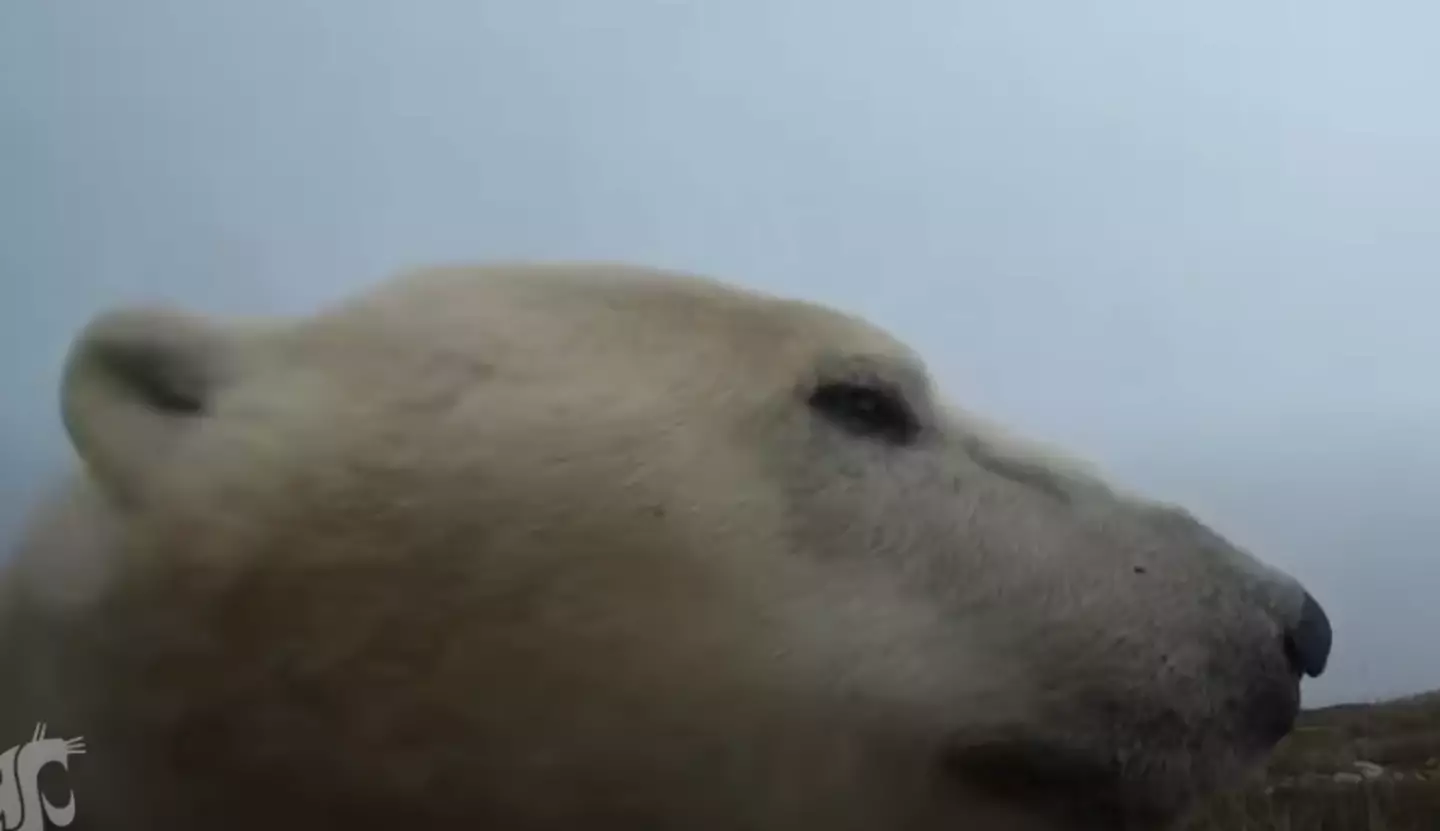
Eye-opening footage of polar bears hunting in Canada has offered an upsetting insight to the reality of their future.
As huge, strong creatures, it's hard to imagine polar bears ever struggling.
But that's a sight that could become more common in the future, as indicated by research conducted by Washington State University.
Advert
Warning: Contains footage of polar bears feeding that some may find upsetting.
Between 2019 and 2022, researchers from USGS and Washington State University spent three weeks each year monitoring 20 polar bears using GPS collars fitted with cameras.
As the amount of sea ice continues to decline amid rising global temperatures, the findings offered an insight into how polar bears are using land to hunt, as opposed to hunting from the ice sheet.
Advert
Research has shown that the period in which there is no ice in Hudson Bay increased between 1979 and 2015 by three weeks.
As a result, polar bears have to spend around 130 days on land.
In a statement cited by IFLScience, the study's lead author Anthony Pagano, a research wildlife biologist with the U.S. Geological Survey Polar Bear Research Program and former Washington State University postdoctoral researcher, said: "As polar bears are forced on land earlier, it cuts into the period that they normally acquire the majority of the energy they need to survive."

Advert
“With increased land use, the expectation is that we'll likely see increases in starvation, particularly with adolescents and females with cubs," Pagano added.
To determine the impacts of more time spent on land, the researchers measured the energy expenditure, diet, behavior, activity, movement rate, blood chemistry, and body composition of the polar bears.
The researchers discovered a variation in behavior, with some polar bears staving off hunger by consuming berries on land, while others found carcasses to feed on while swimming.
In spite of the bears' varying approaches, the study found that 19 of the 20 bears lost weight over the three-week period. The one bear that gained weight found a dead marine mammal carcass on land.
Advert

The findings indicated the bears struggled to feed while in water, with Charles Robbins, director of the Washington State University Bear Center and co-author of the study, noting that neither attempts to hunt on land or in the water is sustainable in the long term.
“Neither strategy will allow polar bears to exist on land beyond a certain amount of time. Even those bears that were foraging lost body weight at the same rate as those that laid down,” Robbins said.
As the sea ice continues to decline and the bears spend more time on land, they will sadly be at increased risk of starvation.
Topics: Animals, Environment, Canada, World News